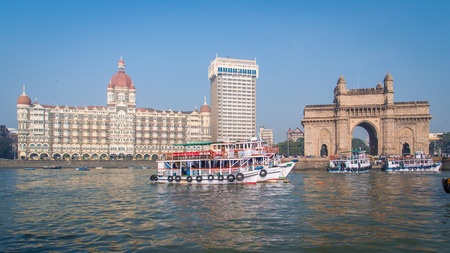30 January, 2018
On January 10, 2018, the Union Cabinet approved amendments to the foreign direct investment (‘FDI’) regime in India with a view to further liberalize and simplify FDI in India and provide for ease of doing business in India. Set out below are the key amendments approved by the Union Cabinet:
i. Single Brand Retail Trading (‘SBRT’): The current FDI policy permits 49% FDI under the automatic route and FDI beyond 49% is permitted under the Government approval route. The Government has decided to permit 100% FDI under the automatic route. Further, the investee entity engaged in SBRT has been permitted to set-off its incremental sourcing1 of goods from India for global operations (during the initial five years, commencing from the 1st of April in the year of the opening of the first store) against the mandatory sourcing requirement of 30% purchases from India. After completion of this five year period, the entity will be equired to meet the 30% sourcing norms directly towards its India operation, on an annual basis.
ii. Civil Aviation: Foreign airlines have been permitted to invest up to 49% in Air India (the Government owned Indian national carrier) under the approval route, provided that total foreign investment, direct and indirect, in Air India does not exceed 49%, and substantial ownership and effective control of Air India continues to remain vested in Indian nationals.
iii. Construction Development: It has been clarified that real-estate broking services do not amount to real estate business, and entities engaged in such broking services are, therefore, eligible to receive 100% FDI under the automatic route.
iv. Power Exchanges: Foreign Portfolio Investors (‘FPIs’) have been permitted to invest in power exchanges through the primary market. Investments by FPIs in power exchanges were earlier restricted to purchases in the secondary market.
v. Issue of Shares for Non-cash Consideration: The issue of shares to a non-resident investor against non-cash considerations, such are pre-incorporation expenses, import of machinery, etc, will now be permitted under the automatic route in case of companies engaged in sectors under automatic route.
vi. Investment Vehicles: Currently, 100% FDI is permitted in Indian companies which are solely engaged in the activity of investing in the capital of other Indian entities, including core investment companies, under the Government approval route.
The Government has decided to align the above requirement with the current FDI policy on ‘Other Financial Services’, and investment in such companies will be allowed up to 100% under the automatic route if they are regulated by any financial services regulator, and Government approval will be required if they are not regulated,
partly regulated or where there are doubts on regulatory oversight.
vii. Medical Devices: The FDI policy currently provides that the definition of ‘medical device’ as contained in the FDI policy would be subject to amendments in the Drugs and Cosmetics Act, 1940. As the definition contained in the current FDI policy is complete in itself, the Government has decided to drop the reference to Drugs and Cosmetics Act, 1940 from the definition in the FDI policy. The Government has also decided to amend the existing definition of ‘medical devices’. However, no details on the amendment have been provided.
viii. Audit Firms: If the foreign investor specifies that the audit for the Indian investee company should be conducted by a particular auditor/audit firm having an international network, then the audit of such company should be carried out as joint audit, wherein one of the auditors should not be part of the same network of auditors
/ audit firms specified by the foreign investor.
The Government has not yet released the amendments to the FDI policy and these changes will also have to be notified by the Reserve Bank of India (‘RBI’) through amendments to the Foreign Exchange Management (Transfer or Issue of Security by a Person Resident Outside India) Regulations, 2017. Additional details or particulars may form part of such notifications.
1 ‘Incremental sourcing’ refers to the increase in terms of value of such global sourcing from India for that single brand (in . terms) in a particular financial year over the preceding financial year, by the non-resident entities undertaking single brand retail trading entity, either directly or through their group entities.
For further information, please contact:
Zia Mody, Partner, AZB & Partners
zia.mody@azbpartners.com

.jpg)





